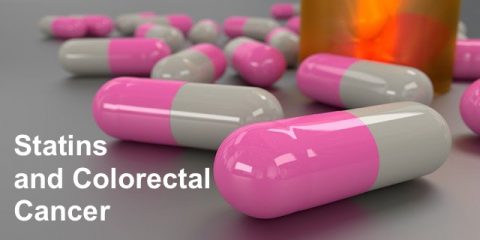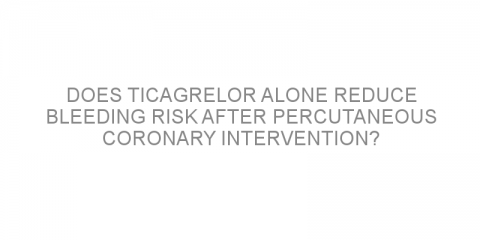In a nutshell This study investigated if vitamin D supplementation (VitD-S) affects coronary artery disease (CAD) outcomes. They found that VitD-S may improve some cardiac outcomes in patients with CAD. Some background Coronary artery disease (CAD) is a common condition worldwide. CAD is caused by blockages in the coronary arteries. These...
Read MoreCoronary artery disease Posts on Medivizor
Does alirocumab benefit adults with familial high cholesterol levels?
In a nutshell This study was carried out in order to assess the safety and effectiveness of alirocumab (Praluent) in patients with homozygous familial hypercholesterolemia (FHC). The study found that these patients saw a significant reduction in cholesterol levels with the use of alirocumab. Some background Homozygous FHC is a genetic...
Read MoreLong-term outcomes for polymer-free vs. durable polymer drug-eluting coronary stents
In a nutshell This study was carried out to compare long-term outcomes between polymer-free (PF) stents and durable polymer (DP) drug-eluting stents (DES) in patients with coronary artery disease (CAD). The study found that at 10 years both DES types had similar outcomes. Some background CAD involves blockages in arteries supplying the...
Read MoreStatins and Colorectal Cancer
Most people are taking statins to lower their cholesterol, right? It’s about reducing your risk of heart disease and stroke. Well, now there is some recent research that finds an association between taking statins and survival of a colorectal cancer diagnosis. This research is a review of almost 30,000 medical records from the National Veterans...
Read MoreDoes an invasive approach benefit patients with stable coronary disease when compared to a conservative approach?
In a nutshell The study assessed whether an initial invasive strategy (IS) for treating stable coronary artery disease (CAD) in patients with moderate or severe ischemia (reduced blood supply to the heart) have a better outcome when compared to a conservative strategy (CS). The study concluded that over the course of 3.2 years, invasive...
Read MoreIs an anti-clotting injection selatogrel effective for patients suffering from heart attacks?
In a nutshell This study examined how fast and effective a dose of an anti-clotting injection, selatogrel, was for patients suffering from heart attacks. The authors found that both doses were effective by 30 minutes, but the high dose worked faster. Some background At the beginning of a heart attack, patients should be given anti-clotting...
Read MoreDoes Xinyue capsule, a Chinese herbal medicine, reduce the risk of cardiovascular events?
In a nutshell This study investigated if the Xinyue capsule (XYC) reduces the risk of cardiovascular events (CVEs) in patients with coronary artery disease (CAD). They found that XYC combined with standard treatment reduced the risk of CVEs in these patients. Some background Coronary artery disease (CAD) is caused by blockages in...
Read MoreDoes air pollution reduce the effectiveness of exercise for patients with heart disease?
In a nutshell This study examined if high air pollution reduced the effectiveness of exercise for patients with heart disease. The authors found that moderate to intense exercise reduced patients’ risks of heart disease and strokes regardless of air pollution. Some background Exercise is one way that patients can reduce their risks of heart...
Read MoreAntiplatelet therapy in patients aged 70 or older with acute coronary syndrome
In a nutshell This study investigated antiplatelet therapy (APT) in patients aged 70 or older with acute coronary syndrome (ACS). They found that clopidogrel (Plavix) was associated with fewer bleeding events (BEs) in these patients. Some background Acute coronary syndrome (ACS) is caused by reduced blood flow to the heart. ACS can...
Read MoreDoes Tai Chi reduce the risk of heart attack?
In a nutshell This study investigated if practicing Tai Chi reduces the risk of a heart attack. They found that Tai Chi improved heart health compared to no exercise. Some background Myocardial infarction (MI) is the medical term for a heart attack. MI is a leading cause of death worldwide. Preventing MI is very important. This is even more...
Read MoreDoes ticagrelor alone reduce bleeding risk after percutaneous coronary intervention?
In a nutshell This study investigated the effect of ticagrelor (Brilique) with or without aspirin after a percutaneous coronary intervention (PCI). They found that ticagrelor alone reduced bleeding risk after PCI. Some background Coronary artery disease (CAD) is caused by blockages in the coronary arteries. This reduces blood flow...
Read MoreDual antiplatelet therapy to prevent cardiovascular events: is a combination of rivaroxaban and aspirin safe and effective after PCI?
In a nutshell This study investigated the effectiveness of dual antiplatelet therapy (DAPT) with rivaroxaban (Xarelto) and aspirin in patients with a history of percutaneous coronary intervention (PCI). They found that DAPT with rivaroxaban and aspirin reduced major adverse cardiac events (MACE) but increased bleeding risk (BR)...
Read More














